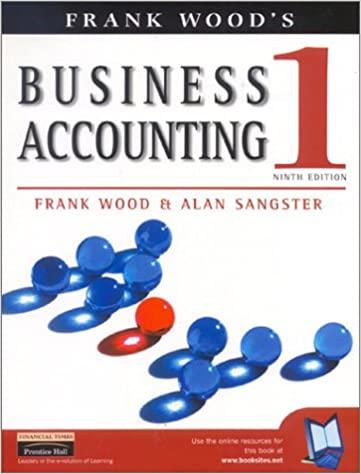Question
Balance-related audit objectives are usually applied to the ending balance in income statement accounts; transaction-related audit objectives are usually applied to transactions reflected in balance
Balance-related audit objectives are usually applied to the ending balance in income statement accounts; transaction-related audit objectives are usually applied to transactions reflected in balance sheet accounts.
True
False
Auditors have less responsibility for recovery of employee fraud than for errors.
Truer
False
The effect of a violation of the existence transaction-related audit objective for the sales account would be an overstatement of that account
True
False
The effect of a violation of the completeness transaction-related audit objective for cash disbursements transactions would be an understatement of cash disbursements
True
False
The transaction-related audit objective that deals with whether recorded transactions have actually occurred is the completeness objective
True
False
The general balance-related audit objective that deals with determining that details in the account balance agree with related master file amounts, foot to the total in the account balance, and agree with the total in the general ledger is the accuracy objective.
True
False
The cut-off objective transaction eat the balance sheet date are recorded in the proper period is, a transaction-related, not a balance-related audit objective.
True
False
When an auditor has reduced assessed control risk based on the identification of controls, he or she may then reduce the extent to which the accuracy of the financial statement information directly related to those controls must be supported through the accumulation of evidence
True
False
Tess of controls are normally performed only on those internal controls the auditor believes have not been operating effectively during the period under audit.
True
False
Test of details of balances typically involve the use of comparisons and relationships to assess the overall reasonableness of account balances.
True
False
Other than inquiring of management about policies they have established to prevent illegal acts and whether management knows of any laws or regulations that the company has violated, the auditor should nor search for indirect-effect illegal acts unless there is reason to believe they may exist
True
False
An audit generally provides no assurance that indirect-effect illegal acts will be detected
True
False
When an auditor believes that an illegal act may have occurred, the first step he or she should take is to inquire of management at a level above those to be involved in the potential illegal act.
True
False
Step by Step Solution
There are 3 Steps involved in it
Step: 1

Get Instant Access to Expert-Tailored Solutions
See step-by-step solutions with expert insights and AI powered tools for academic success
Step: 2

Step: 3

Ace Your Homework with AI
Get the answers you need in no time with our AI-driven, step-by-step assistance
Get Started


